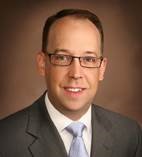August Lunch & Learn – 8/4/2022
| MAFSM – August Lunch & Learn
Thursday, August 4, 2022 12:00-1:00 PM EDT
|
||
|
Topic: Sea Level Rise The United States Interagency Task Force on Sea Level Rise and Coastal Flood Hazard Scenarios and Tools is tasked with providing authoritative and freely-accessible information for U.S. coastlines to serve as a starting point for on-the-ground coastal preparedness planning. The Task Force’s latest contribution to the 5th U.S. National Climate Assessment (NCA5), the 2022 Sea Level Rise Technical Report, fills in significant geographic gaps in sea level rise data availability using methods and findings of the Sixth Assessment Report of the United Nations Intergovernmental Panel on Climate Change. This Lunch and Learn Discussion will present key updates including 1) temporal and spatial refinements to the Task Forces’ scenarios and regional projections, 2) the development of a tide-gauge based set of gridded extreme water level probabilities applicable for most U.S. coastlines, and 3) an assessment of flood-frequency changes by 2050. Finally, we will discuss the creation of a companion Application Guide designed to assist coastal decision-makers and professionals with applying and integrating the updated Technical Report into local sea level rise planning and adaptation decisions. The Application Guide writing team reflects sea level rise planning experience from a diverse range of geographies and represents a unique collaboration among federal, state, and academic partners. The result is practical guidance on where to start with sea level rise planning, how to consider the updated information provided in the Technical Report, and practices for decision-making in the face of uncertainty.
|
||
 |
Speaker: Mark Osler
Senior Advisor for Coastal Inundation and Resilience National Oceanographic and Atmospheric Administration (NOAA)
|
|
| Mark Osler is the Senior Advisor for Coastal Inundation and Resilience for the U.S. National Oceanic and Atmospheric Administration (NOAA). His leadership advances coastal science and the ability of decision makers to prepare for and respond to changes affecting the nation’s coastlines. He serves as senior advisor to NOAA leadership on defining research, applied science, and policy priorities related to understanding and reducing impacts of coastal risk to the public, our national security, and our nation’s economy.
Mark’s inter-agency leadership includes: US Government representative to the G7’s Ocean Risk and Resilience Action Alliance Federal Coordinating Lead Author – Coastal Effects Chapter – 5th National Climate Assessment Co-Chair Coasts Workgroup – US Global Change Research Program Co-Chair Subcommittee on Water Information and Services – ICAMS NOAA representative within various White House interagency fora including the National Security Council, Office of Science and Technology Policy, and the Council on Environmental Quality.
Prior to joining NOAA Mark worked for 17 years in the private sector. He holds a bachelor’s degree in civil engineering from Lehigh University and a master’s degree in civil engineering from the University of Delaware’s Center for Applied Coastal Research. |
||






